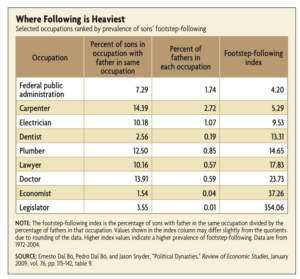I will be brief. Straussianism is a set of interpretative practices along the following lines, as best as I understand it. The great philosophers and thinkers may have a specific private belief – let’s call it x. But they may not be able to say exactly what they want to say, especially when times are bad, and they risk making enemies. Hence, they need to write indirectly. This means that when a thinker is saying not-x, we should sometimes understand that they really mean to say x. They are communicating ambiguously – but the Truly Wise can grasp their real meaning.
The relationship between this esoteric tradition – Straussianism – and Leo Strauss is a little complicated. I’ve seen recent arguments that Straussianism has taken on a life of its own – has become vulgar, if you like, however much of a contradiction in terms Vulgar Straussianism might seem to be.
The obvious objection to Straussianism is the standard one. If you help yourself to the claim that when this or that Great Man is saying x, they may actually mean not-x or x, depending, you are making it harder to reach a shared understanding of the truth. If you further contend that only those who grok your particular hidden lore can distinguish sincerity from dissimulation, you can redefine the history of thought to mean whatever you want it to mean.
But there is a second – and perhaps more serious – objection. Straussianism – especially in its vulgar form – may present even more pernicious temptations to the writer than the reader.
If you conceive of yourself as a Straussian, and find yourself caught between the desires of different audiences with directly contradictory desires over what you write, you may adopt the following protocol. Write x to please Audience One, while throwing out subtle hints that actually you agree with Audience Two, and secretly believe, and are secretly arguing, not-x.
The dilemmas of this style of communication are the major theme of Kurt Vonnegut’s novel, Mother Night. Is Howard Campbell Jr, the American turncoat and Nazi propagandist, actually a secret anti-Nazi, who only boosts the arguments of evil people so that he can convey hidden messages that help the forces of good? Or is he a sincere Nazi, who sends coded messages as an aside or a failsafe? Nobody really knows, not even Howard Campbell Jr. He ends up in a horrible mess.
One could state the broader problem in game theoretic language. Straussianism makes it more difficult to reach a separating equilibrium in the communications game, which would allow you to clearly distinguish Nazis from anti-Nazis. And as with game theory more generally, you may also find yourself in infinite regress. Are communications about Straussianism themselves Straussian or non-Straussian? Is there any way to navigate the wilderness of beliefs, meta-beliefs and meta-meta-beliefs, except by assumption, so that expectations might actually converge on some shared truth? But since I think the problem of enacted Straussianism is practical, not abstract-theoretic, I’ll leave it at that, and say nothing further.





